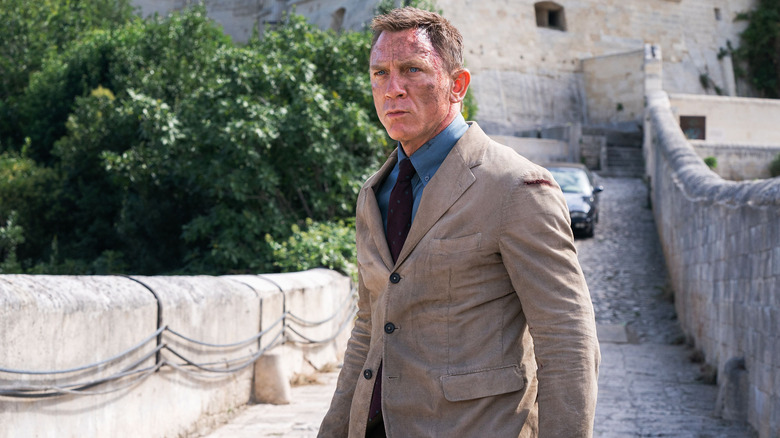
There is nothing else quite like the James Bond series. These aren't just action movies -- they're a tour of nearly 60 years of pop culture history, offering a glimpse into the trends and styles of any given era. Our tour guide on this journey is Agent 007, the avatar of cool, the guy who chases trends and makes them. To binge the James Bond movies in this day and age is to understand what audiences wanted out of an action hero over the decades. And sometimes, what producers thought audiences wanted.
This delirious, intentional inconsistency makes ranking the entire series a tricky effort. How do you measure an old school (in every sense of the word) movie like "Dr. No" against a slick, uber-'90s production like "GoldenEye"? That was the hill the /Film staff had to climb to assemble this list, which is sometimes obvious, sometimes surprising, and will probably enrage more than a few diehard James Bond fans. But that's okay. What is 007 fandom if not an excuse to argue about the best and the worst of the series? Let's leap right in.
Note: this ranking does not include "No Time to Die," but it will be updated shortly once everyone who participated has had a chance to see the movie.
Die Another Day
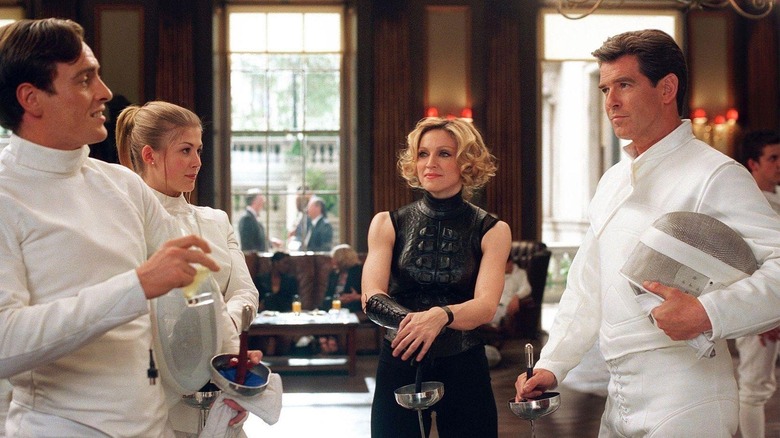
It doesn't always follow that the quality of the song associated with its respective James Bond"movie, is, itself, a reflection of that movie's quality. But Madonna's "Die Another Day" is unquestionably the worst Bond song in what can certainly be argued as the worst James Bond movie. There are so many missteps in assembling what, on paper, seem like the pieces that would make for a good outing. But its failed artsy approach and awful dancy score, among many other things, can't be ignored. This hardly feels like a Bond movie at all. And even the worst Bond movies are enjoyable because they still feel like Bond movies. It is, in this way, "Die Another Day" fails spectacularly, as it, instead, feels like an early 2000s imitation of a Bond movie. Perhaps its greatest gift to the franchise was the fact that it so dearly necessitated a need for reinvention, which paved the way for Daniel Craig's casting and "Casino Royale." Though it truly is a shame Pierce Brosnan had to go out like this. That handsome devil deserved much better. (Ryan Scott)
A View To A Kill
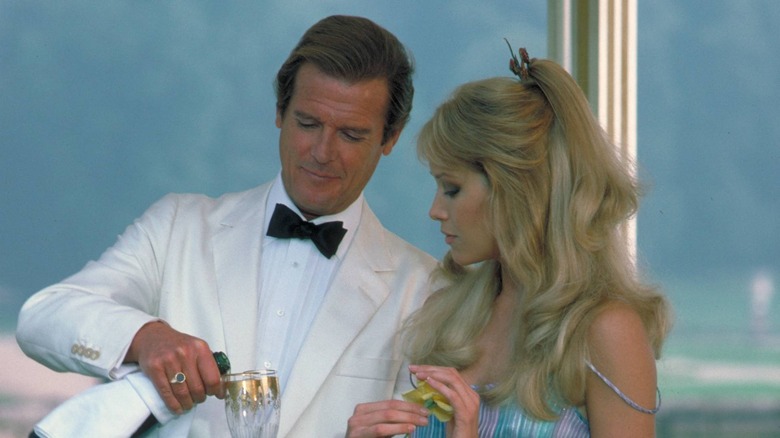
What happens when James Bond gets old? The latest Daniel Craig films explore this (and do a fine job doing so), but the Roger Moore years weren't prepared to confront this. Instead, the film acts like its leading man is still as spry as ever and the dissonance is hard to watch. Moore looks like a grandfather, and the film insists he's still the dashing, unstoppable action hero he was a decade prior. The result is... Well, it's hard to watch. It doesn't help that the plot surrounding Moore is as forgettable as Bond storylines get (the villain wants to flood Silicon Valley) and with the exception of Christopher Walken and Grace Jones as deranged villains, the supporting cast is a snooze. Moore's tenure ended on one of the franchise's biggest lows. (Jacob Hall)
Thunderball
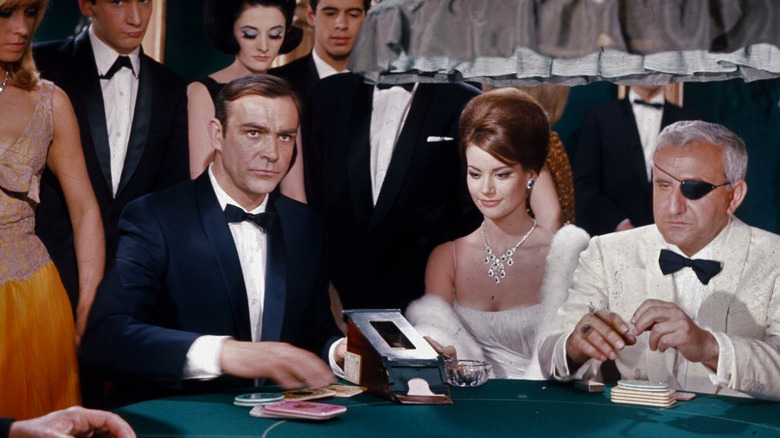
Exactly how much painfully slow underwater battle footage can one movie contain? "Thunderball" puts that question to the test, and comes up with an unsatisfying answer: far too much. Director Terence Young is clearly captivated by the technology of the era that allows him to film underwater, but his interest wildly exceeds that of the audience's. This is only the fourth Bond film – the big climax shouldn't be putting people to sleep. If you fast-forward through those sequences, the rest of the movie isn't terrible – there's a cool jetpack moment in the beginning, and a great scene where Bond skeet shoots from the hip that makes Connery look like an absolute badass – but the underwater stuff dominates so much of the story that it can be tough to remember anything else. (Ben Pearson)
You Only Live Twice
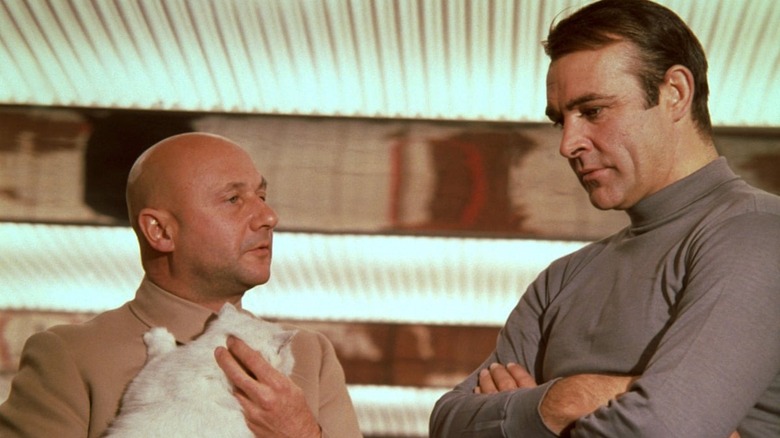
"You Only Live Twice" set the standard for James Bond goofiness. Donald Pleasance's Blofeld, with his cat, grey suit, and scarred face, became the template for all pop culture villains going forward. The plot involves a secret lair inside a hollowed-out volcano from which the villains are stealing American and Soviet spacecraft. Sean Connery pilots a helicopter that fits in a suitcase. It's wild and silly and played just straight enough to keep us invested. But the Japanese setting proves to be a double-edged sword. On one level, it's fun to see Bond having adventures in Tokyo. On the other, the film's treatment of its Japanese characters is often insensitive at best, culminating in a damning subplot where Bond has surgery to "become Japanese." As fun as the film can be, "You Only Live Twice" comes from a very different time and it's tough to stomach. (Jacob Hall)
Diamonds Are Forever
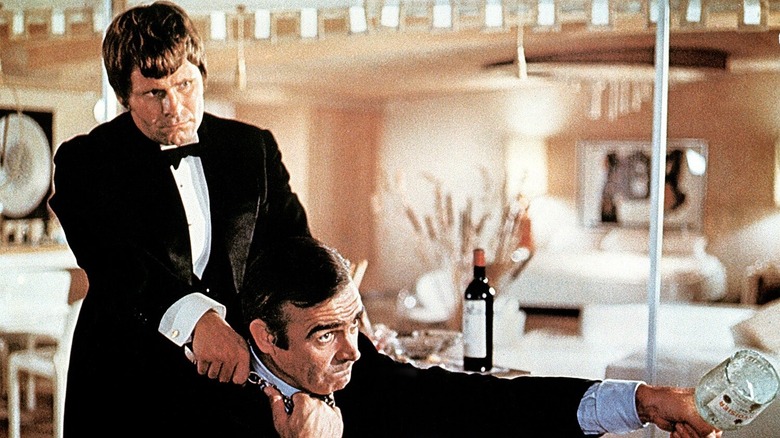
Sean Connery left the role of 007 behind after "You Only Live Twice," but only briefly, as he would return following "On Her Majesty's Secret Service" for "Diamonds are Forever." It was a huge deal at the time, perhaps akin to Robert Downey Jr. coming back as Iron Man, or something along those lines in the modern context. Was Connery's return, directed by the great Guy Hamilton, everything audiences hoped for? Probably not. But something about this hammy romp makes it rewatchable and charming in its own way. Who doesn't want a little bit of Bond in Vegas action? It's a movie that has earned its place within the canon, that much is certain. (Ryan Scott)
Octopussy
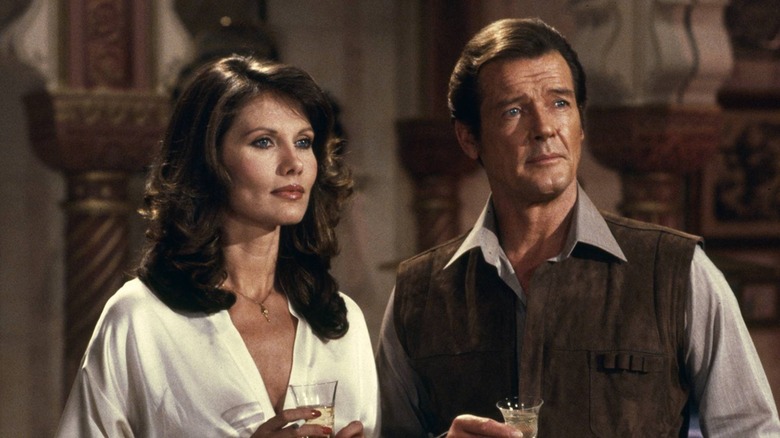
"Octopussy" is the most absurdly named Bond film and a lackluster entry in the Moore canon. The snapshot from this film that's burned into my head the most is Moore wearing a clown suit at a circus – an image which feels like an apt metaphor for this downward period in the storied franchise's history. During the standard scene in which Q outfits Bond with new gadgets, Bond actually uses a video camera to zoom in and out on a woman's cleavage; these movies have always been about the intersection between action and sex, but they're rarely this literal about creating titillating imagery. As usual, though, there are some cool action beats that help to counteract those off-kilter moments: this film's opening plane chase and its lengthy train chase still hold up pretty well. (Ben Pearson)
Moonraker
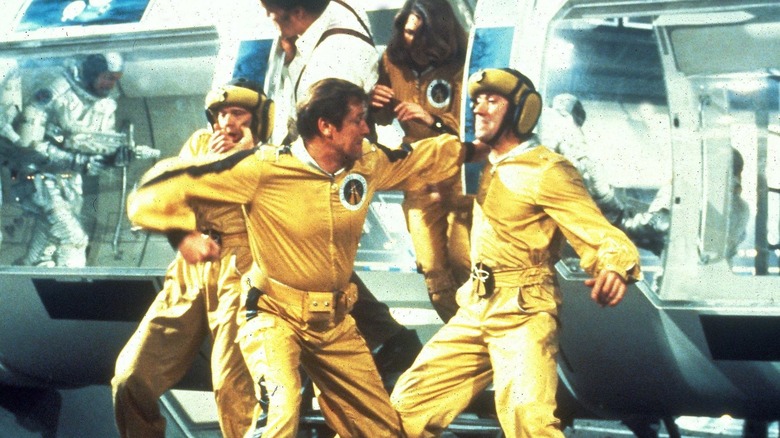
For much of its existence, the "James Bond" franchise has been known to chase trends. In the case of 1979's "Moonraker," they were trying to get in on that sweet, sweet space action brought about by "Star Wars" just two years earlier. But "Star Wars," this is not. Rather, we get one of the most enjoyably misguided films in the character's canon, with emphasis on enjoyment. Roger Moore's fourth outing is truly bananas, campy, nonsensical, and messy. At one moment a pigeon -- yes a pigeon -- does a double-take. It's that kind of movie. However, there is no such thing as a bad Bond movie and "Moonraker" is the perfect example of why that is. Even when these movies go off the rails, they do so in glorious fashion. (Ryan Scott)
Spectre
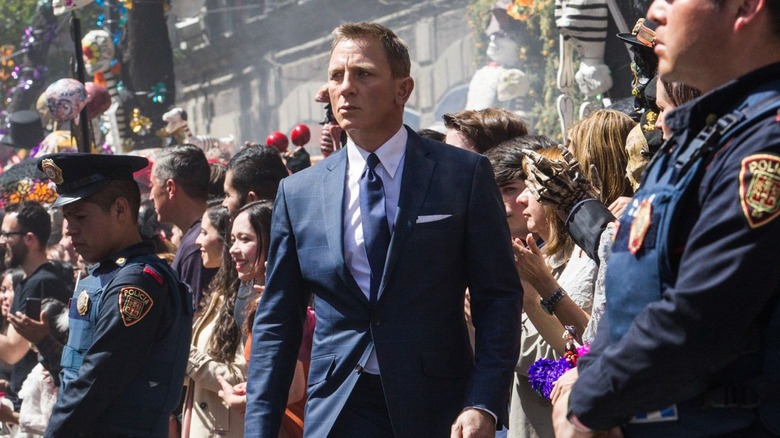
"Spectre" is not all bad. Dave Bautista's Mr. Hinx is a nice throwback to the types of archetypal villains Bond faced off against earlier in the series, and Jesper Christensen is suitably creepy and unnerving as Mr. White. The opening Day of the Dead action scene looks like it took a lot of work to accomplish. But other than those small bright spots, "Spectre" is dismal. I feel second-hand cringe on behalf of the writers and producers for thinking it was a good idea to retcon every major event of the Daniel Craig era into being orchestrated by Blofeld (Christoph Waltz), and the decision to make them half-brothers is nothing less than wildly misguided. Simply put, this is one of the most embarrassing blockbusters of the modern era. (Ben Pearson)
Quantum Of Solace
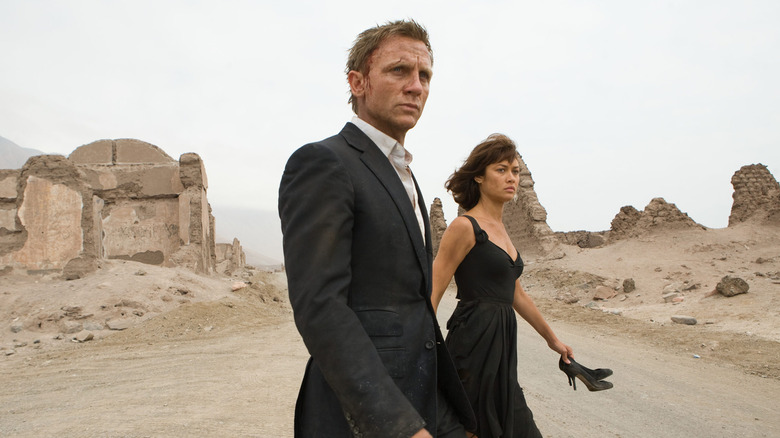
"Quantum of Solace" is a mess. You could forgive the bland villain and blander Evil Scheme (he wants to control the water supply of an entire nation) and the underwritten supporting cast if the film delivered on the action, right? But it doesn't. The film commits the biggest sin of them all: its action is downright unwatchable. Every fight scene and car chase is cut to ribbons, edited so quickly and sloppily as to render them impossible to follow. The attempt to ape the "Bourne" films is transparent and, quite frankly, mortifying. Sure, the James Bond movies have always chased trends, but rarely with execution this poor. Only Daniel Craig's haunting lead performance keeps this movie watchable. (Jacob Hall)
Live And Let Die
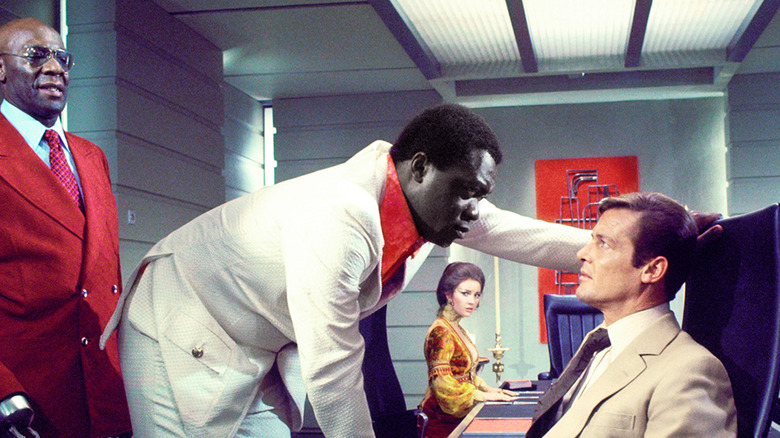
Roger Moore's first outing as 007 is a memorable one: he runs across alligator backs, faces off against a voodoo priest, out-maneuvers a racist sheriff, and seduces a young Jane Seymour. Moore's tenure is overtly goofier than any other Bond actors' (with the possible exception of Brosnan's), and you can feel the tension between that goofiness (J.W. Pepper, anyone?) and the desire for Moore to be a suave, cool, fresh iteration of the super spy. These films have always reflected the trends of their era, so perhaps it was inevitable that a Bond movie would lean into the staples of blaxploitation. But the decision to embrace the supernatural leads to one of the most baffling endings of any Bond film. Kick-ass theme song, though! (Ben Pearson)
The Living Daylights
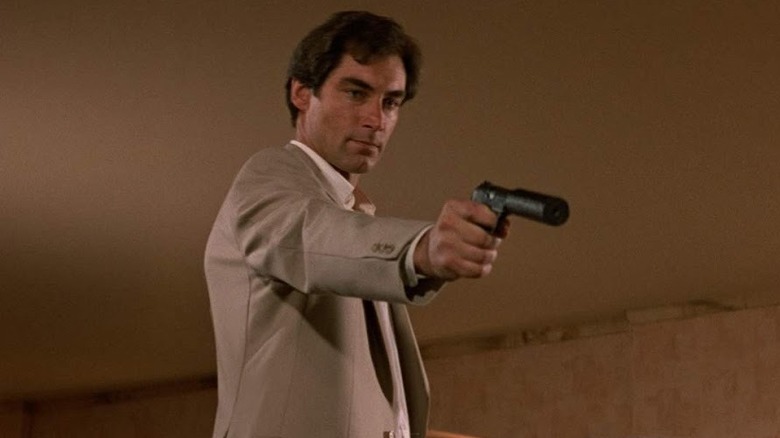
Pour one out for Timothy Dalton, who never really had a chance to properly shine. "The Living Daylights" is a fun, strange beast, with one foot in the past and one in the future. The story and tone recall the best of the Roger Moore years, with crazy gadgets, ambitious/silly action scenes, and outrageous henchmen. But Dalton's performance is preview of what would come 20 years later -- he takes James Bond seriously and plays him as a cold-blooded killer with some kind of chip on his shoulder. Dalton's steely anti-charm feels ahead of its time, and it somehow melds with the kitchen-sink storyline involving a defecting Soviet general, an eccentric American arms dealer, and a cellist who's in way over her head. (Jacob Hall)
Licence To Kill
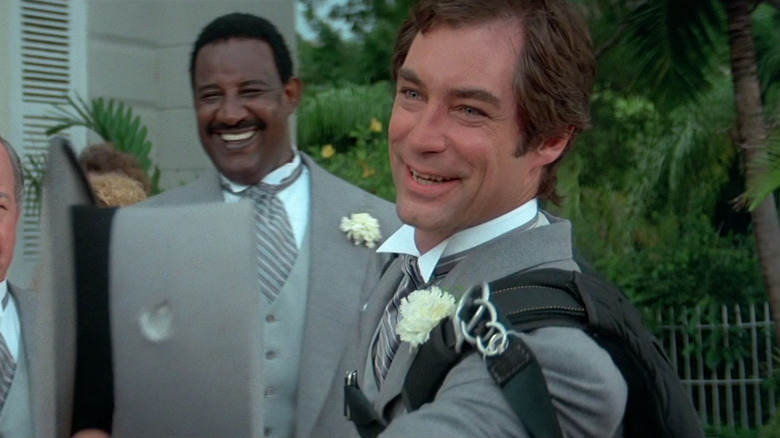
"License to Kill" was the second and final entry in Timothy Dalton's short tenure as 007. Directed by John Glen, it is, in many ways, a forward-thinking entry in the series. It's more overtly violent than most of its predecessors, while also serving as an out-and-out revenge flick. It serves, in hindsight, as a bit of foreshadowing, in that, so many Hollywood franchises in the ensuing decades would go for dark and gritty -- Including James Bond. It's just unfortunate for Dalton that it didn't quite gel in this particular movie. But credit where credit is due for trying to do something different, instead of being stuck in the past. (Ryan Scott)
The Man With The Golden Gun
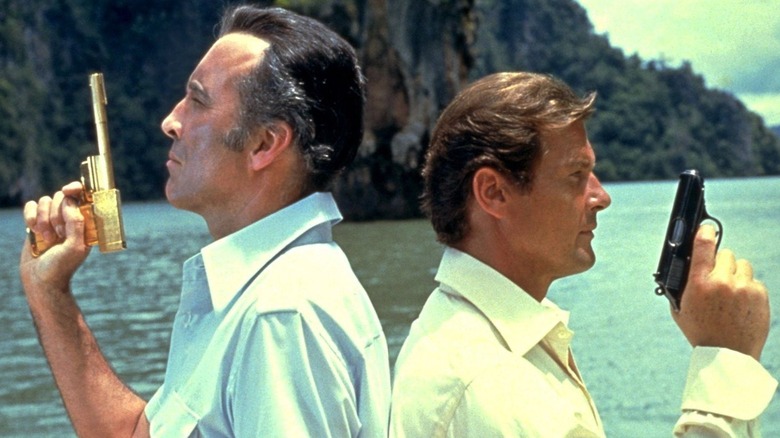
It's no secret that Roger Moore's tenure as James Bond was a bit of a mixed bag. That having been said, movies like "The Man with the Golden Gun," over time, have managed to provide a lot of longevity to the series. These movies are highly rewatchable, silly as they may be at times. But the brilliance of Christopher Lee as Scaramanga gives this one a lot of mileage. In this house, we respect a high-stakes spy movie where a third nipple is a major plot point. It was also the fourth and final entry in the franchise directed by Guy Hamilton, which certainly adds something to this one for hardcore fans. (Ryan Scott)
Dr. No
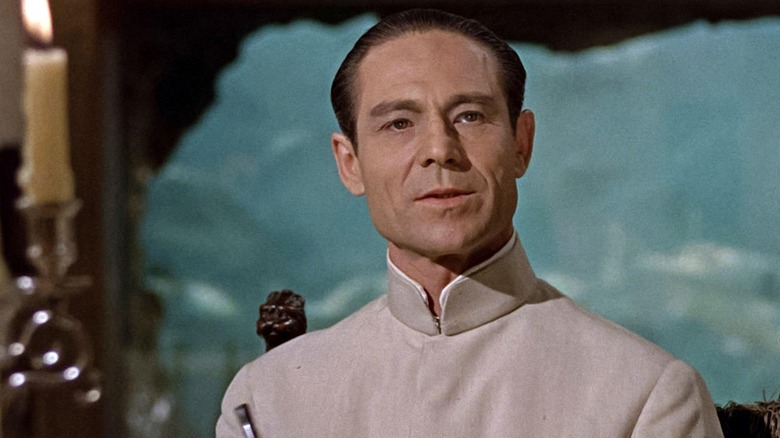
It cannot be overstated how much of a cultural game changer this was when it was released in the early 1960s. Sean Connery oozes a charisma, sex appeal, and ruthlessness that was uncommon for cinematic heroes of the era, and his ineffable sense of cool helps to counterbalance some of the movie's weaker elements. The pacing plays out at a snail's pace compared to some of the later entries (it seems to luxuriate in watching Bond quietly walk across rooms) and the whole fake dragon subplot is hokey at best. Still, respect must be paid to the movie that kicked this whole thing off. (Ben Pearson)
Tomorrow Never Dies
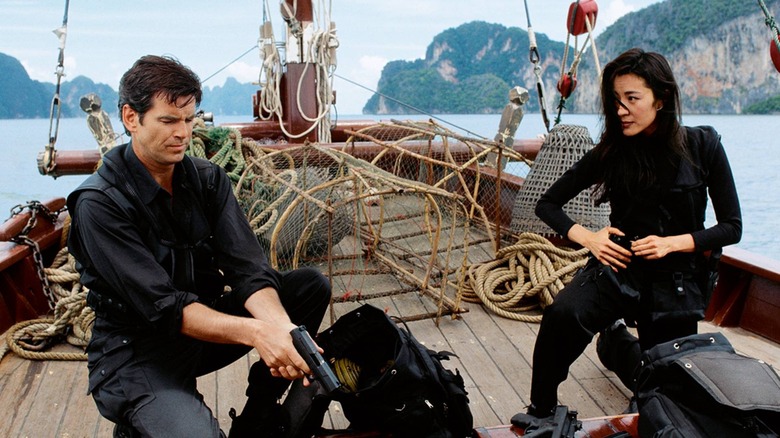
For my money, "Tomorrow Never Dies" is one of the most underrated James Bone movies, and a worthy follow-up to the highs of "GoldenEye." Pierce Brosnan has fully settled into the role and he makes that signature blend of wit and danger look easy, whether he's flirting at parties or engaging in massive shootouts on board an exploding "stealth boat." And if every Bond film can be measured by the strength of its villain, look no further than Jonathan Pryce as a megalomaniacal media tycoon who wants to start wars so his newspapers can always have the scoop ahead of the competition. It's absurd, and Pryce plays it accordingly. Plus, it's impossible to dislike any movie that casts Michelle Yeoh as Bond's equal. (Jacob Hall)
The World Is Not Enough
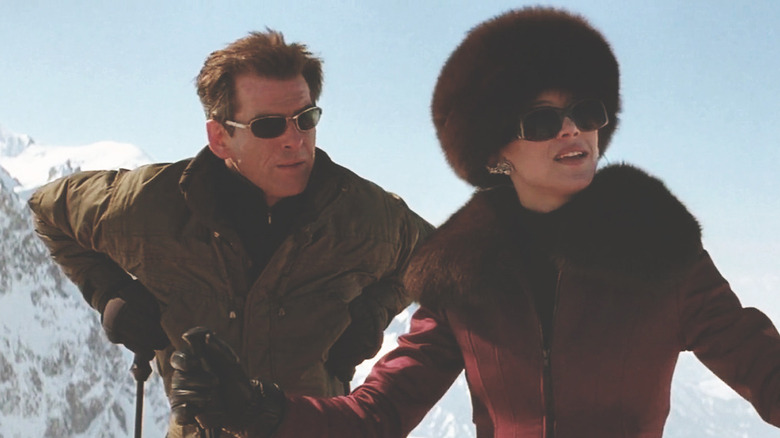
Though not typically held up as one of the more beloved entries in the "James Bond" series, time has been kind to "The World is Not Enough," a misunderstood film, in my humble opinion. It's the epitome of a late 90s action flick, put through the Bond lens. The whole thing starts with an audacious 14-minute cold open that really sets the tone for the all-over-the-place adventure we're about to go on. We get a nice little twist with Sophie Marceau's Elektra King and, for my money, it looks like the most fun Pierce Brosnan ever had during his tenure. And, come on, if you can't derive joy from the idea of Denise Richards as Dr. Christmas Jones, we are not the same. (Ryan Scott)
For Your Eyes Only
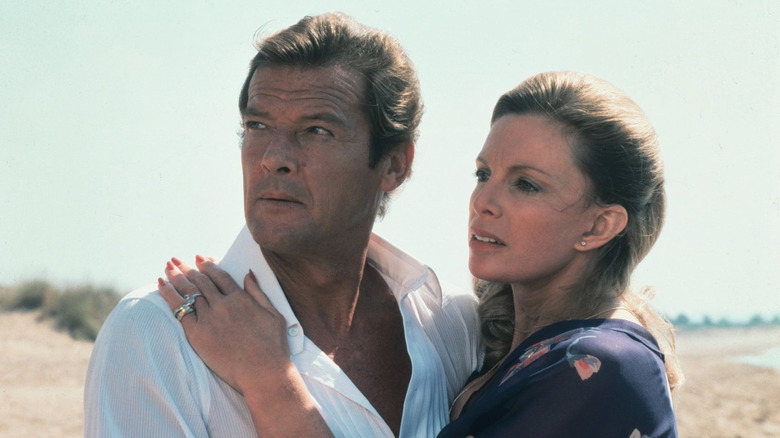
A young woman swears revenge against assassins who killed her parents, and her storyline converges with Bond's mission to find a stolen machine used to locate British subs. There's so much potential in that basic set-up, but this movie isn't interested in capitalizing on it as much as it could – instead, there's a subplot involving an underage girl who's obsessed with Roger Moore's Bond which feels like it belongs in a late-stage Clint Eastwood film. Still, it's not without its interesting moments. The opening helicopter action scene could inspire an entire essay all to itself, and it also includes one of Moore's most ruthless kills: kicking a car off a cliff with a man inside it. (Ben Pearson)
The Spy Who Loved Me
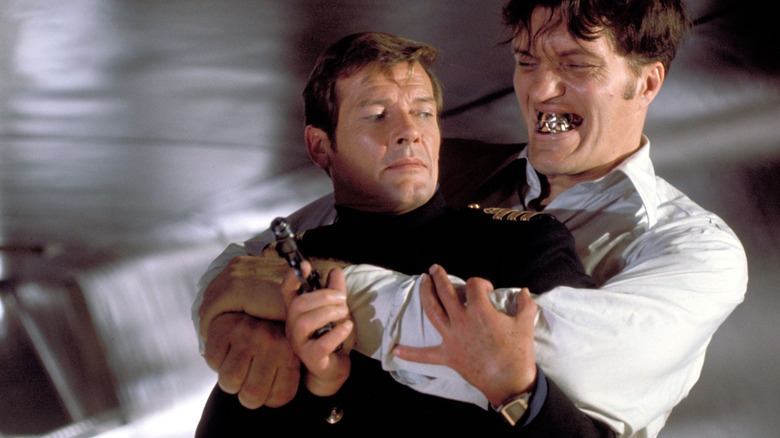
In many ways, "The Spy Who Loved Me" is the platonic ideal of the James Bond movie. It contains everything you expect from the series, and it does each and every one of those things well. Massive sets, impressive action, memorable villains, terrific use of the supporting cast, a satisfying blend of a humor and ruthless action, and, of course, a damn cool car equipped with impossible gadgets (this one can turn into a submarine). The plot is typical world domination/destruction nonsense, but that's part of the appeal. The fun is watching Roger Moore, never better, strut his way through these impossible situations and save the day in the nick of time. The opening scene, where Bond skis off a cliff and unfurls a parachute with the colors of the Union Jack, is iconic and still jaw-dropping today. (Jacob Hall)
GoldenEye
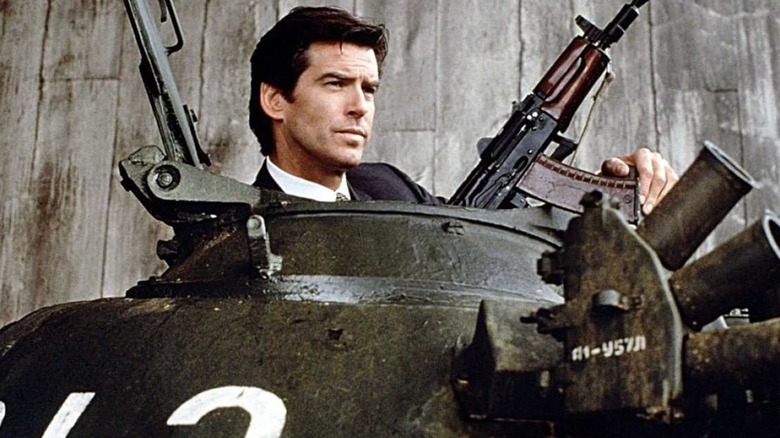
"GoldenEye" wasn't just another Bond film when it came out in 1995: it was a phenomenon that resulted in arguably the most beloved N64 game ever, which went a long way toward establishing this film's place in the Bond firmament. Director Martin Campbell rejuvenated the series with this spectacular story in which 007 (a game Pierce Brosnan, never better in the role) faces off against a surprising old foe. It's action-packed, sleek, tragic ... oh yeah, and there's a woman who kills people by squeezing them to death with her thighs. "GoldenEye" has the best opening scene of any Bond movie (yeah, I said it), the first appearance of Judi Dench as M, and one of the best gadgets of the past 30 years: an exploding golden pen that plays a crucial role in the climax. (Ben Pearson)
Goldfinger
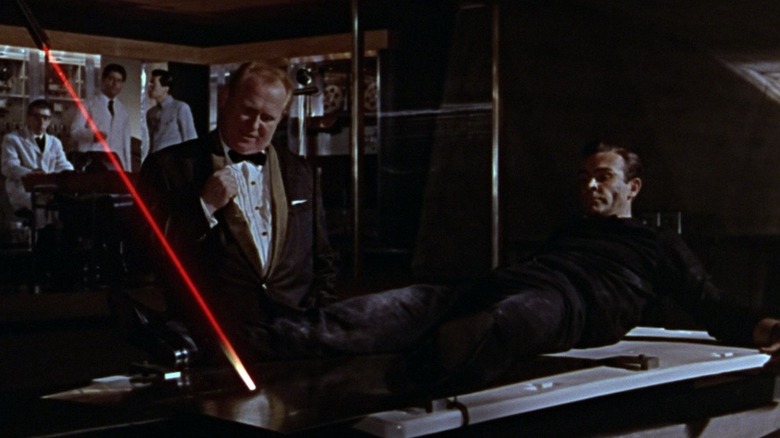
What can one possibly say about "Goldfinger" that hasn't already been said? While movies have redefined "James Bond" after director Guy Hamilton's 1964 spy flick, this is the movie that defined the franchise. The movie that arguably every Bond movie has lived in the shadow of ever since. For fans of Bond, despite some of its outdated moments ("Man Talk" for example), this is a watershed moment in blockbuster filmmaking that cemented 007 as a global icon. The gadgets. The puns. The Aston Martin DB5, arguably the coolest car in cinema history! Sean Connery delivered the quintessential Bond movie. Period. (Ryan Scott)
On Her Majesty's Secret Service
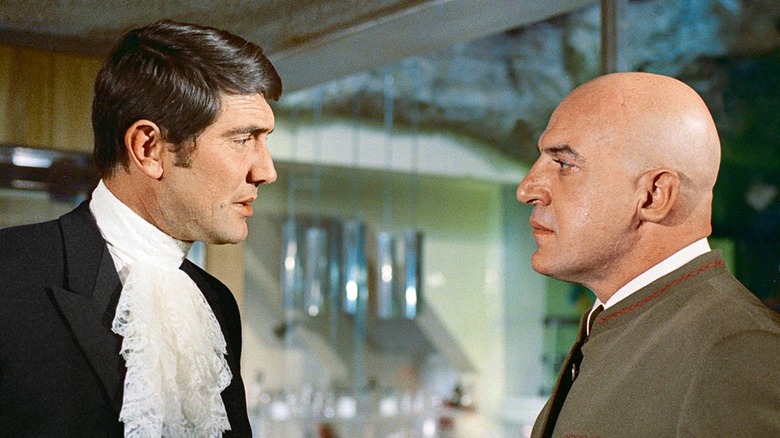
Time has been kind to "On Her Majesty's Secret Service," a film that was maligned for years before James Bond fans realized it was Actually Great. One-and-done Bond actor George Lazenby is only adequate in the lead, but the film around him is spectacular and special, the rare 007 movie that genuinely puts character first and lets the big action power emotional highs rather than visceral thrills. Fueled by John Barry's greatest score, the film scales back the absurdities of the past few entries to tell a fairly straightforward espionage story wrapped around a love story. What happens when James Bond falls in love? As the object of his affections, Diana Rigg set a new standard for leading ladies in the series, and the tragic conclusion remains haunting decades later. We don't have the Craig Era without this movie. (Jacob Hall)
Skyfall
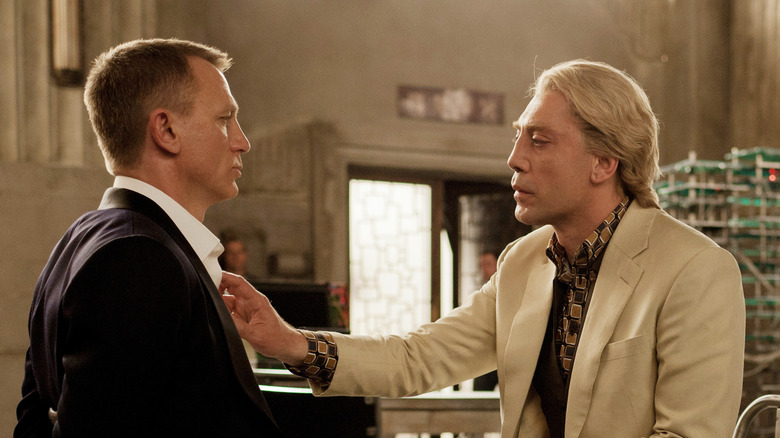
"Skyfall" came at such a unique time. "Quantum of Solace" was produced during the writer's strike, hampering Daniel Craig's second outing as 007 after "Casino Royale" kicked it off with such a bang. It ultimately resulted in a four-year gap between movies. But that wait was well worth it as director Sam Mendes delivered a globe-trotting, modern action flick that both felt familiar and bold for Bond. It remains one of the best action movies of the past decade, and one of the very finest entries in the franchise overall. Much can be said of this movie, its lack of an actual Bond girl (one could argue Judie Dench's M is the Bond Girl), its taking up after "The Dark Knight in some ways. But I will always think of one scene that gives me chills to this day. Bond running through the streets of London to catch Silva, en route to a noble shootout to save M from certain death, as the pitch-perfect words of Tennyson ring out from M. Not big, bombastic score. Literal poetry. Bond, James Bond indeed. (Ryan Scott)
From Russia With Love
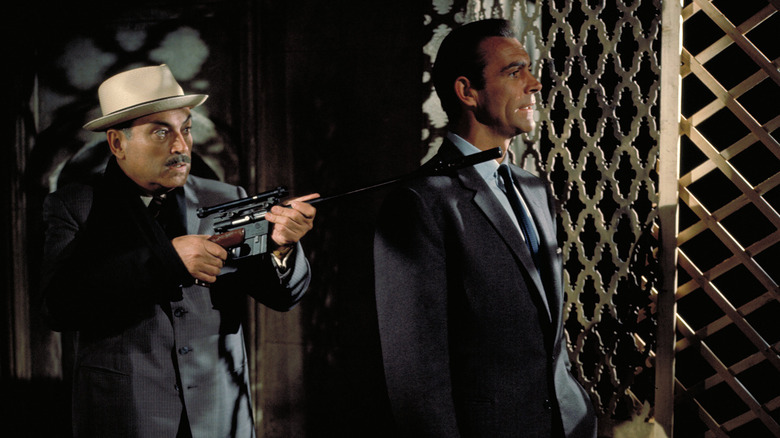
"From Russia With Love" rules. It's the ultimate Cold War fantasy spy epic, full of shifting allegiances, tense train voyages, cold-blooded assassinations, spectacular secret lairs, psychotic villains, boat chases, and even a man vs. helicopter action sequence. The film straddles such a thin, satisfying line, managing to feel heightened without getting ridiculous, capturing the 007 of the original Ian Fleming novels while hinting toward the outrageousness that was to come in future films. The film is very much a product of its time (it was made in the '60s and its attitudes reflect that accordingly), but treat this as the thrilling time capsule that it is and you'll find a pitch-perfect slice of old school entertainment. Plus: Robert Shaw makes for the best villain in all of Bond-dom. (Jacob Hall)
Casino Royale
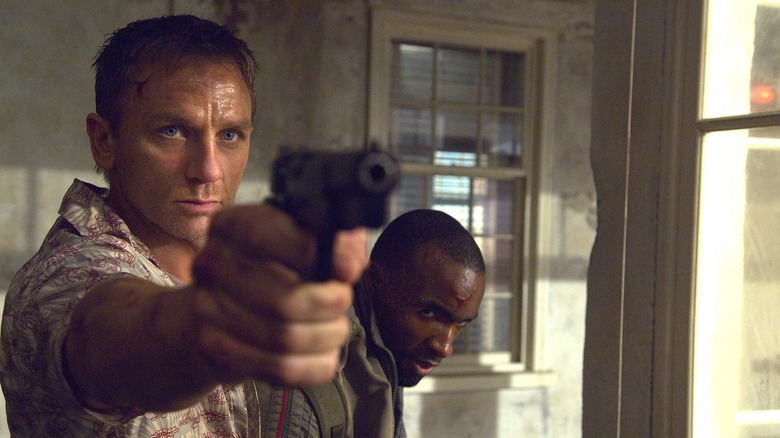
For a franchise so beholden to its history, you'd think a Bond film that lacks several of the franchise's mainstays (gadgets, Q, Moneypenny, etc.) would go over like a lead balloon (or, better yet, a Kananga balloon). But "Casino Royale" strips away all of the excess and served as a perfect transition into modern blockbuster filmmaking. The entire franchise has never quite attained the same combination of visceral thrills and genuine emotion as it did here: Bond and Vesper is a relationship for the ages, the freerunning intro is an excellent encapsulation of the mid-2000s "gritty origin story" era, and this movie catapulted Mads Mikkelsen into "household name" status. What's not to love? (Ben Pearson)
Read this next: The 20 Greatest James Bond Villains Ever
The post Every James Bond Movie Ranked From Worst to Best appeared first on /Film.
0 Comments